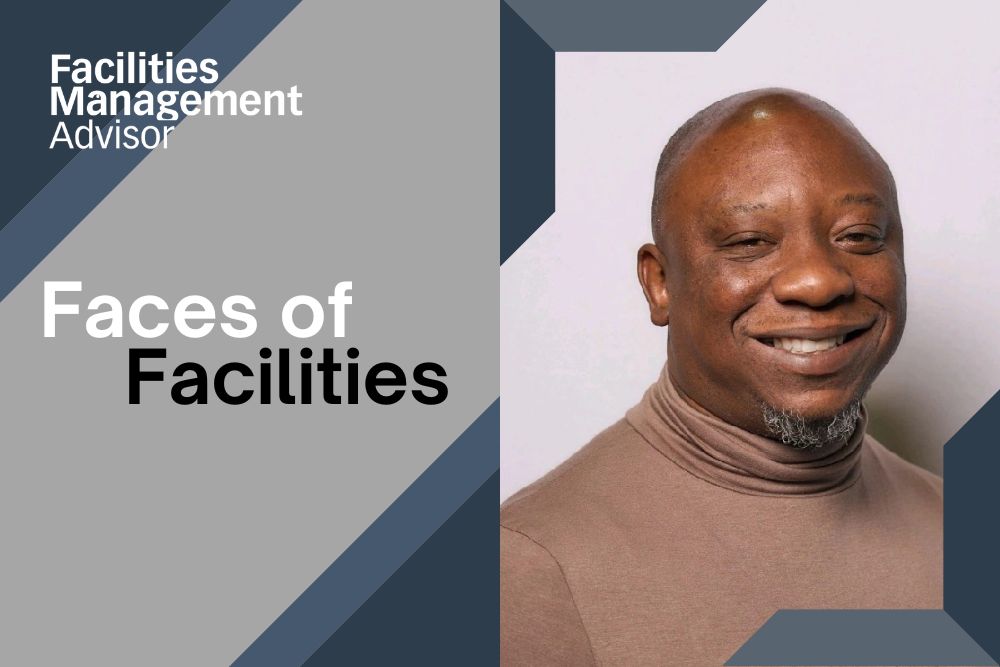Whenever customers order tasty treats from a Checkers or Rally’s fast-food restaurant, Tee McCluster’s goal is to ensure proper facilities management helps improve the overall guest experience.

McCluster is the national facilities and operations service manager of Checkers & Rally’s, a merged restaurant chain that operates under both the Checkers and Rally’s brands and specializes in hamburgers, hot dogs, and french fries. In his role, McCluster oversees 240 corporate-owned locations nationwide. His responsibilities encompass a spectrum of tasks, including managing capital expenditures (CapEx) and addressing expedited and critical issues pertinent to corporate restaurants. McCluster first joined Checkers & Rally’s about two years ago, and he has over 12 years of experience in facilities management.
To learn more about McCluster and his take on industry issues, please read the “Faces of Facilities” interview below:
How did you get your start in the field?
I pursued my technical education at Pinellas Technical College, where I obtained several valuable certifications. These include completion of the Public Works Academy, specialized training in heating, ventilation, and air conditioning (HVAC), and wastewater management. Building upon this foundation, I furthered my professional development by completing career training programs in Florida as a home inspector and insurance adjuster.
My journey into the field of facilities management was serendipitous, beginning as an apartment maintenance technician. From there, I transitioned into a role as a corporate facilities specialist, gradually advancing into diverse leadership positions within the industry and leading to my current position as a national facilities manager of Checkers & Rally’s.
What’s your best mistake, and what did you learn from it?
Not being able to recognize and seize opportunities for career and personal advancement.
By understanding what I truly want to achieve, I can more effectively identify opportunities that align with my objectives by developing self-awareness about my strengths, interests, and values. This has allowed me to assess opportunities through a lens that considers not only their potential benefits but also their alignment with my long-term goals and personal fulfillment.
What are some of the biggest facilities management issues at your organization?
Being the inaugural experienced facilities professional in this role presents a unique challenge, particularly in establishing a department from the ground up. However, I’ve embraced this challenge wholeheartedly and am dedicated to laying a solid foundation to support our restaurants and guests effectively.
My goal is to create a department that not only meets but exceeds the needs of our restaurants and guests. By leveraging my expertise and collaborating with stakeholders across the organization, I am confident that we can overcome any obstacles and achieve success together.
What’s your favorite part about working in the industry?
At the core of our service is the tangible transformation we provide; taking items that arrive broken, in disrepair, or nonoperational and returning them in a usable state. Knowing that our efforts directly contribute to the satisfaction and appreciation of our team members.
By ensuring that our facilities are fully operational and well-maintained, we elevate the overall guest experience. When guests encounter a clean, functional environment, it enhances their perception of our brand and fosters positive interactions.
Ultimately, our commitment to excellence in facilities management not only benefits our team members but also positively impacts the overall guest experience, creating a welcoming and enjoyable environment for all.
What changes would you like to see in the FM industry?
The shortage of skilled service trades presents a significant challenge to our repair efforts. With a limited pool of qualified professionals available, it becomes increasingly difficult to address maintenance and repair needs promptly and effectively.
How can company leaders make facilities management a value within their organization?
By advocating for the importance of the facilities team, developing their capabilities, and implementing supportive structures, we can strengthen the foundation of our operations and drive success across the organization.
Where do you see the industry heading in five years? Are you noticing any major trends?
Competitive wage offerings for experienced facilities managers have become increasingly necessary due to the retirement of senior roles within the industry. As seasoned professionals depart from their positions, there’s a growing demand for skilled individuals to fill these vacancies and lead facilities management teams effectively.
Do you have any advice for people entering the profession?
The profession of facilities management presents limitless opportunities across diverse industries and sectors. Whether it’s in quick service restaurants (QSR), technology, pharmaceuticals, entertainment, or beyond, the need for skilled and experienced facilities management professionals remains consistently high to optimize operations, reduce costs, and enhance the overall environment for employees, customers, and stakeholders.
Facilities management continues to be a dynamic and rewarding field for professionals seeking growth and impact.
Are you or a colleague an FM professional interested in being profiled for the “Faces of Facilities” series? Please contact Editor Joe Bebon at JBebon@BLR.com.

